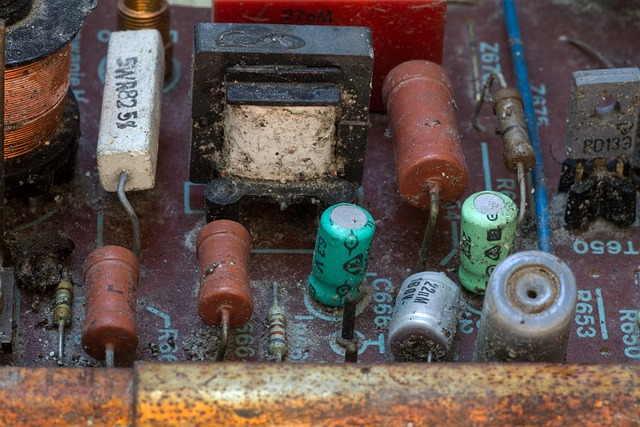Implementing organized e-waste collection events and distributed points in Albany can overcome challenges posed by diverse e-waste streams and limited recycling facilities. Businesses should partner with specialized centers for effective segregation, data destruction, and environmental compliance, while promoting eco-conscious disposal within organizations. Collaborative efforts yield positive outcomes for community and environment; innovative technologies and public awareness drive participation in computer recycling initiatives. Commercial e-waste recycling Albany is crucial for global electronic waste reduction.
In the rapidly growing digital landscape, understanding and addressing commercial e-waste recycling challenges in Albany is paramount. This article delves into the intricacies of managing electronic waste on a large scale, focusing specifically on Albany’s context. We explore best practices to enhance efficiency and highlight the significant impact of robust recycling programs. By examining current trends, we forecast the future of commercial e-waste recycling in Albany, emphasizing sustainable strategies that hold global relevance.
- Understanding Commercial E-Waste Recycling Challenges
- Best Practices for Efficient Albany E-Waste Management
- The Impact and Future of Large-Scale Recycling Programs
Understanding Commercial E-Waste Recycling Challenges

Navigating the complex landscape of commercial e-waste recycling in Albany presents unique challenges. As the city grapples with the growing volume of electronic waste from businesses and institutions, efficient and responsible management becomes imperative. One of the primary hurdles is the diverse nature of e-waste streams, which include a wide range of items like computers, servers, and telecommunications equipment, each requiring specific handling and recycling processes.
Additionally, ensuring proper recycling involves coordinating with specialized facilities that can handle hazardous materials safely. The availability of such facilities and their capacity to process large-scale commercial waste can be limited, creating bottlenecks in the recycling chain. To overcome these challenges, Albany could benefit from organized e-waste collection events calendar and well-distributed collection points map, fostering a culture of responsible electronics disposal at both business and residential levels. Encouraging participation in recycling programs and providing convenient options for recycling electronics at home are key steps towards mitigating the environmental impact of commercial e-waste.
Best Practices for Efficient Albany E-Waste Management

In the realm of commercial e-waste recycling Albany, implementing best practices is paramount for efficient management and environmental stewardship. Businesses play a crucial role in reducing the vast amounts of electronic waste generated annually. One effective strategy involves partnering with specialized recycling centers that cater exclusively to commercial e-waste. These facilities ensure proper segregation, data destruction, and responsible disposal, adhering to stringent environmental regulations. By outsourcing recycling needs, companies can focus on their core operations while contributing to a sustainable future.
Additionally, fostering eco-conscious e-scrap disposal practices within the organization encourages employees to take responsibility for electronic assets at end-of-life. This includes proper collection, packaging, and labeling of recyclables, ensuring they reach designated recycling facilities. Encouraging recycling electronics at home is also beneficial; individuals can dispose of outdated devices through local drop-off programs or events dedicated to commercial e-waste disposal Albany. Together, these collaborative efforts create a comprehensive strategy for managing e-waste, leaving a positive impact on both the community and the planet.
The Impact and Future of Large-Scale Recycling Programs

The implementation of large-scale e-waste recycling programs in cities like Albany has profound implications for both environmental sustainability and economic development. As commercial e-waste recycling becomes more widespread, it offers a viable solution to the growing global problem of electronic waste. By specializedly handling large volumes of e-waste, these programs can significantly reduce the negative ecological impact associated with improper disposal methods. This includes mitigating soil and water contamination, as well as minimizing greenhouse gas emissions.
Looking ahead, the future of e-waste recycling in Albany and beyond appears promising. Innovative technologies and enhanced public awareness are driving increased participation in computer recycling programs across New York State. Initiatives like the regular free tech recycling days in 2023 encourage residents to responsibly dispose of their outdated electronics. This collective effort not only contributes to a cleaner environment but also allows for the recovery of valuable materials, fostering a circular economy model. Recycling centers open on weekends further enhance accessibility, ensuring that more individuals can participate in this essential practice.
In light of the growing challenges posed by commercial e-waste in Albany, adopting efficient management strategies is crucial for a sustainable future. Understanding the unique complexities of this field and implementing best practices can significantly impact the success of large-scale recycling programs. As we look to the future, it’s evident that continued innovation and collaboration are essential to enhance recycling capabilities, ensure environmental protection, and foster a greener economy in Albany and beyond. Effective management of commercial e-waste is not just an option; it’s a necessity for a healthier, more sustainable city.














